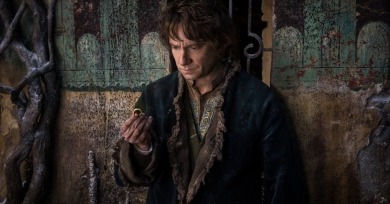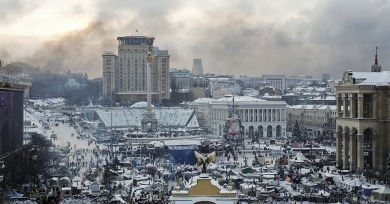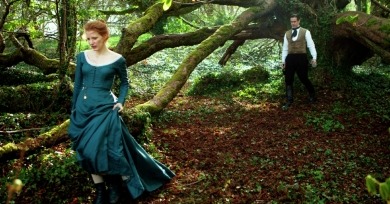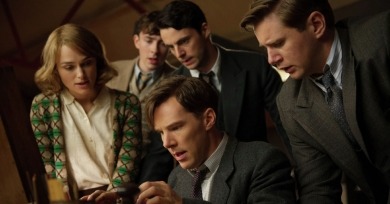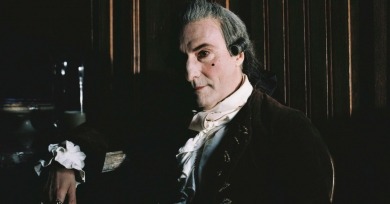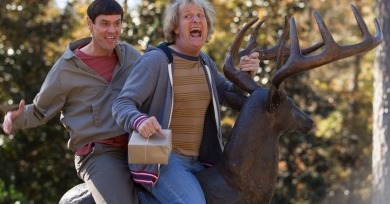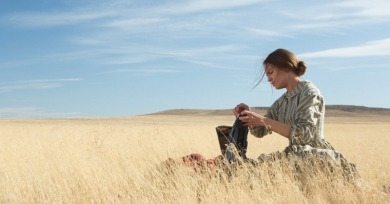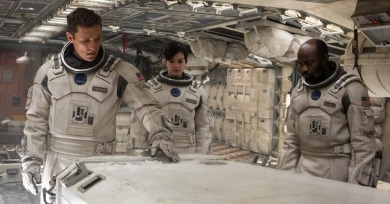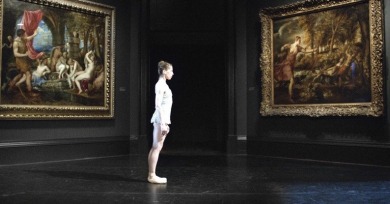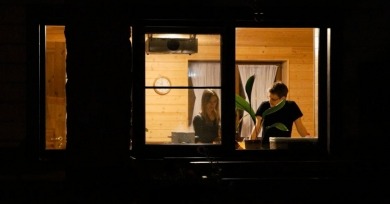Reviews
Jackson’s at once digressive and bombastic style clearly grates for some. But there’s a singular earnestness and enthusiasm to these movies (as, too, to the Lord of the Rings films) that sets them apart from their many soulless imitators.
Maidan shows how documentary works at its best and most pure—assemblage and accrual. His vast shots are made for the cinema—they hold so your eye can roam at will.
It’s a production that required the full support of those titans of cultural conformity toward which Pynchon’s novels have long cast a wearily jaundiced eye. Return of the repressed or just further proof of the mainstream culture system’s massively absorptive qualities? Does it matter?
There are very few “cinematic” moves in Liv Ullmann’s Miss Julie, but every last one lands like a blow, forces you to re-find your footing. Choices carry more weight when there are less of them, and Ullmann doesn’t make any of these choices lightly.
The Babadook takes the form of a somewhat conventional bogeyman story, but it has much more on its mind. With this frightening, seemingly simple story of a children’s book monster come to fearsome life, Kent burrows into the mindscape of two people—a mother and son—contending with delayed post-trauma.
Begging forgiveness, it’s the film equivalent of a pretty bouquet tossed in the general direction of Turing’s columbarium, carrying a card reading “Oops.”
A thought that occurred to me while watching Albert Serra’s Story of My Death: the lot of filmmakers traveling the prestige Euro festival circuit is not incomparable to that of the itinerant gentleman of prerevolutionary Europe.
This may be difficult to believe today, but there was for a moment a sense that Carrey was an actually dangerous, destabilizing force.
Bennett Miller’s bleakly efficient film is not only about America. It’s also about masculinity, brotherhood, fatherhood, class, competition, the drive for self-definition and expression. (It’s about just about everything except, of course, women, save one looming, destructive mother figure.)
The first thing that you should know before watching Tommy Lee Jones’s The Homesman is that it operates under the fundamental assumption that everyone who took part in the settling of the American West was, by almost any contemporary standard, insane.
Christopher Nolan usually makes movies about characters who are prisoners of their own devices, which makes Interstellar a departure. This time out, a protagonist’s single-minded obsession leads him to liberation rather than entrapment.
It is, I think, this impulse to account for the form of finished objects—to think through the circumstances under which they were made, the material limitations of their production, and the needs they were created to fill—that leads Wiseman to take the interest he does in the day-to-day business of institutional administration.
The intellectual questions in nonfiction of late have swirled around hybridity and exploding forms, but hopefully in the wake of CITIZENFOUR we’ll be refocused on the basics of filmmaking: Poitras has crafted a real-life thriller more energetic than Kathryn Bigelow’s infinitely higher budgeted Zero Dark Thirty.
By its nature, 3D only functions if the apparatus used to record its images and the human eyes there to receive those images all work in tandem. What happens, Goodbye to Language wonders, when even that breaks down, yet the pretense of 3D remains?
